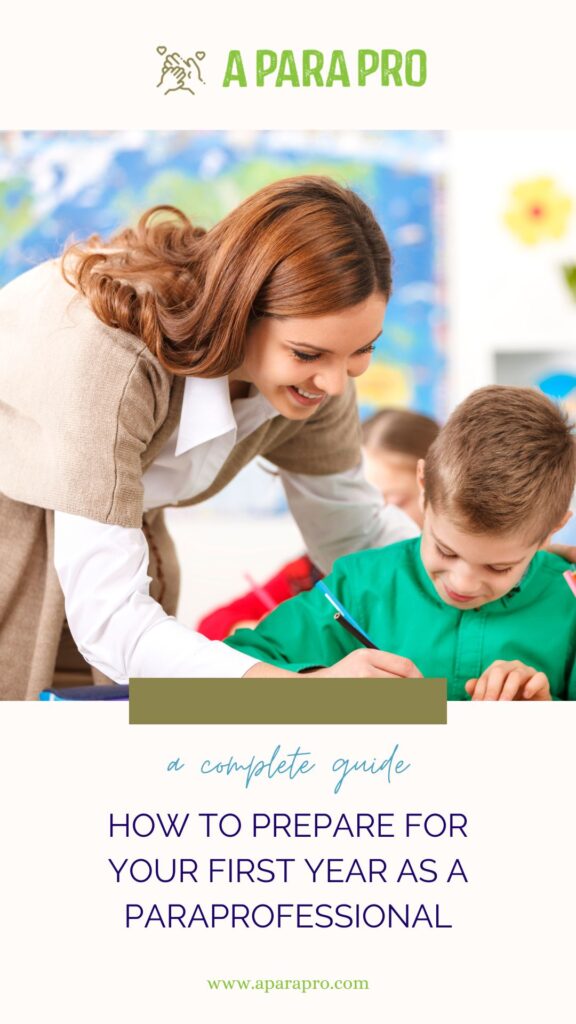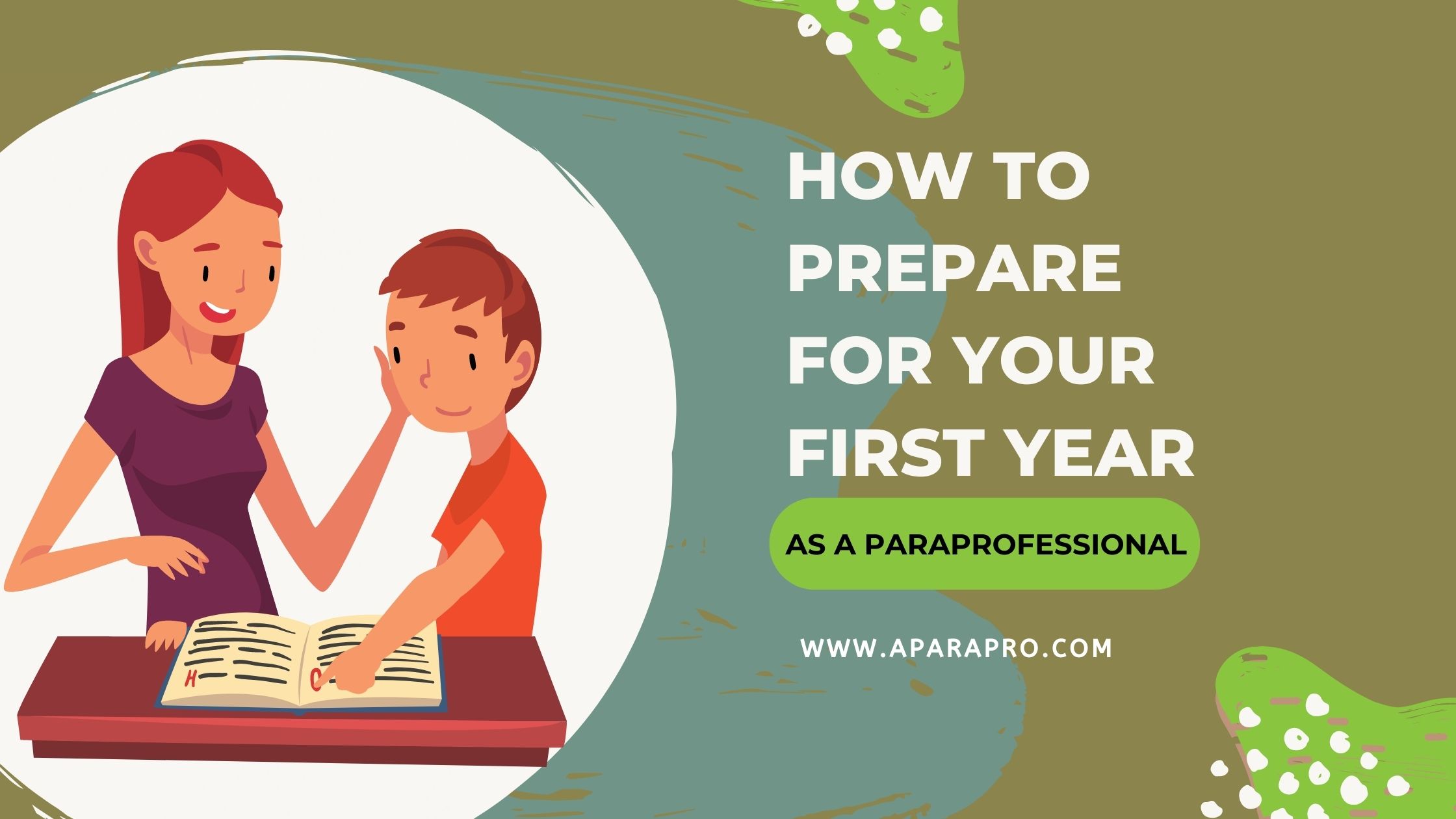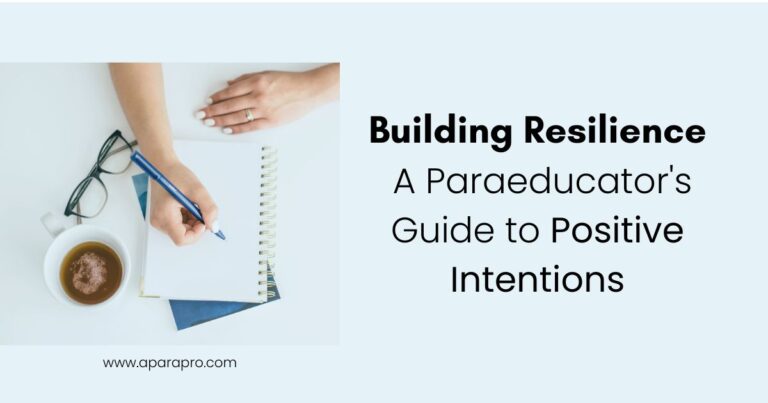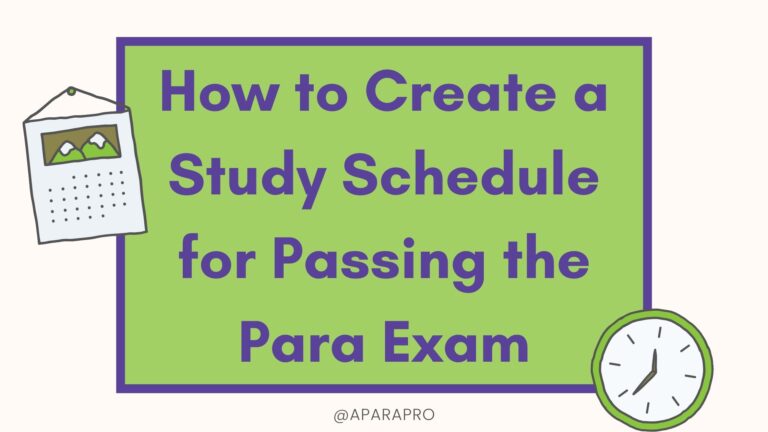How to Prepare For Your First Year as a Paraprofessional
If you're reading this, it means you're either about to start a new job as a paraprofessional, or you're considering becoming one. Either way, congratulations! Paraprofessionals play a vital role in supporting students and educators in the classroom. Here's a complete guide on how to make sure you hit the ground running and have a successful first year as a paraprofessional.
How to Prepare For Your First Day as a Paraprofessional
You've landed a job as a paraprofessional and you're eager to get started. If you're a new paraprofessional, congrats! You're about to embark on an incredibly rewarding career helping students with special needs. But just like any new job, there will be a learning curve as you get acclimated to your new duties and responsibilities.
The first day of work is always a little bit nerve-wracking. No matter what job you're starting, there's always a bit of a learning curve.
If it’s your first time as a paraprofessional you may be feeling a mix of excitement and nerves. You want to make a good impression and do your best to support the students, but you're not sure what to expect.
But even if you're experienced in the field, starting a new job can be daunting. You might be wondering what the expectations are, what sort of duties you'll be responsible for, or how to best support the students and educators you'll be working with.
Never fear! I'm here to help. In this blog post, I'll share some tips on how to successfully navigate your first year as a paraprofessional.

Duties in Your First Year as a Paraprofessional
As a paraprofessional, you will often be asked to take on new duties or projects at your job. Here is a guide on how to complete these tasks, and excel in your new role.
- First and foremost, it's important to build positive relationships with the students and educators you'll be working with. Get to know them and their individual needs and strengths. This will help you better support them in the classroom.
- Second, it is important to understand the expectations of your new job. Talk to your supervisor, and ask questions about what will be expected of you. It is also a good idea to shadow another paraprofessional, to get a better sense of the job.
- Third, it's also important to be proactive and take initiative when it comes to your duties. If you see something that needs to be done, don't wait to be asked – just do it! This will show your dedication to your job and will be appreciated by those you work with.
- Lastly, don't be afraid to ask for help when you need it. Whether it's from your co-workers, your supervisor, or the students and educators you support, we all need help from time to time. Asking for help shows that you're willing to learn and grow in your role and that you're not afraid to admit when you need assistance.
Once you have a good understanding of your new role, it is time to start preparing for your duties as a first-time paraprofessional.
First, take some time to research the topic. If you are going to be working with students with special needs, for example, you will want to familiarize yourself with the types of needs they may have.
Next, start planning and organizing your work. This will help you to be more efficient, and will also allow you to keep track of your progress.
Finally, be sure to stay positive, and don't be afraid to ask for help when you need it. It is important to remember that you are still learning and that everyone makes mistakes. If you need help, ask your supervisor, or another paraprofessional. With hard work and dedication, you will be successful in your new role as a paraprofessional.
The Complete Guide on How to Succeed in Your First Year of Work as a Paraprofessional
First, let's start with the basics. As a paraprofessional, you'll be working closely with students who have special needs. Your job will be to provide one-on-one or small group instruction and support, depending on the needs of the students you're working with.
You might also be responsible for things like helping with classroom management, providing behavior support, and assisting with communication and social skills development.
No matter what your specific duties are, there are a few things you can do to set yourself up for success in your new role.
Here are a few tips:
1. Get to know the students you'll be working with.
One of the most important things you can do as a paraprofessional is to develop positive relationships with your students. Remember, you are a role model and an important support system for them. If possible before you start your job, take some time to learn about the students you'll be working with. It’s important as a paraprofessional to get to know the students you'll be working with. This includes learning about their individual needs, interests, strengths, hobbies, and anything else that will help you connect with them. By building positive relationships with your students, you'll be better equipped to support them in their learning.
Here are a few tips for developing positive relationships with your students:
- Get to know them on a personal level. Learn their interests, hobbies, and goals.
- Show them that you care. Be available to lend a listening ear or offer a helping hand.
- Be consistent. Let them know what they can expect from you daily.
- Encourage them. Help them to see the potential in themselves and their ability to succeed.
The better you know the students you're working with, the better you'll be able to support them.
2. Get to know the staff.
Another key to success as a paraprofessional, in addition to getting to know the students, it's also important to get to know the staff and develop a good working relationship with the teachers you'll be working with and supporting in the classroom. Who are the teachers you'll be working with? What's their teaching style? What are their expectations for paraprofessionals?
The better you understand the staff's expectations, the more successful you'll be in your role. This means being professional and respectful, being willing to lend a helping hand, and being a team player. By establishing a good working rapport with teachers, you'll be able to more effectively support them in the classroom. Prepare yourself further with this teacher's perspective.
3. Be organized and keep on top of your workload.
As a paraprofessional, you'll likely have a lot of different tasks and responsibilities to keep track of. One of the keys to success as a paraprofessional is being and staying organized.
This means having a system for
- tracking student progress
- knowing where to find resources
- keeping track of your tasks and deadlines
- being prepared for each day
- staying on top of your paperwork
- and being able to quickly and easily access the information you need.
Staying organized is key to ensuring that you're able to complete all of your duties in a timely and effective manner.
4. Communicate effectively.
Another key to success is effective communication. This means being able to effectively communicate with the students you're working with, as well as the staff.
You'll need to be able to understand and respond to communications from the students, as well as be able to effectively communicate your thoughts and ideas.
Here are a few tips for communicating effectively with parents and educators:
- Be respectful. Listen to what they have to say and value their input.
- Be clear. When you're communicating information, be sure to do so clearly and concisely.
- Be positive. Focus on the positive aspects of the students' progress and achievements.
5. Be patient and flexible.
One of the most important qualities of a successful paraprofessional is patience and flexibility. Things can change quickly in the education field, so you must be able to adapt to new situations and tasks as they arise. Things will inevitably change throughout the year, and you'll need to be able to adapt to those changes.
You will likely be working with students who have a wide range of abilities, and it's important to be patient with every one of them. Additionally, it's important to be flexible in your role, as you may be asked to do things that may be outside of your normal job description. Whether it's a change in the student's needs or a change in the staff's expectations, being flexible will help you be successful in your role.
6. Advocate for your students.
One of your most important roles as a paraprofessional is to advocate for your students. This means being their voice, standing up for their rights, and making sure they have the resources they need to succeed.
7. Get familiar with the school's policies and procedures.
Each school has its policies and procedures in place, so you must take the time to get familiar with these. This way, you'll know what's expected of you and you can be sure that you're following all the necessary procedures.

We hope these tips help you succeed in your first year as a paraprofessional!
So there you have it! These are just a few tips to help you succeed in your first year as a paraprofessional. I hope that by following these tips, you'll be well on your way to having a successful first year. Just remember to be patient, stay positive, take initiative, be willing to learn, take it one day at a time, and always keep the lines of communication open by asking for help when you need it, and you'll do great! You'll be on your way to a successful career in this rewarding field.






